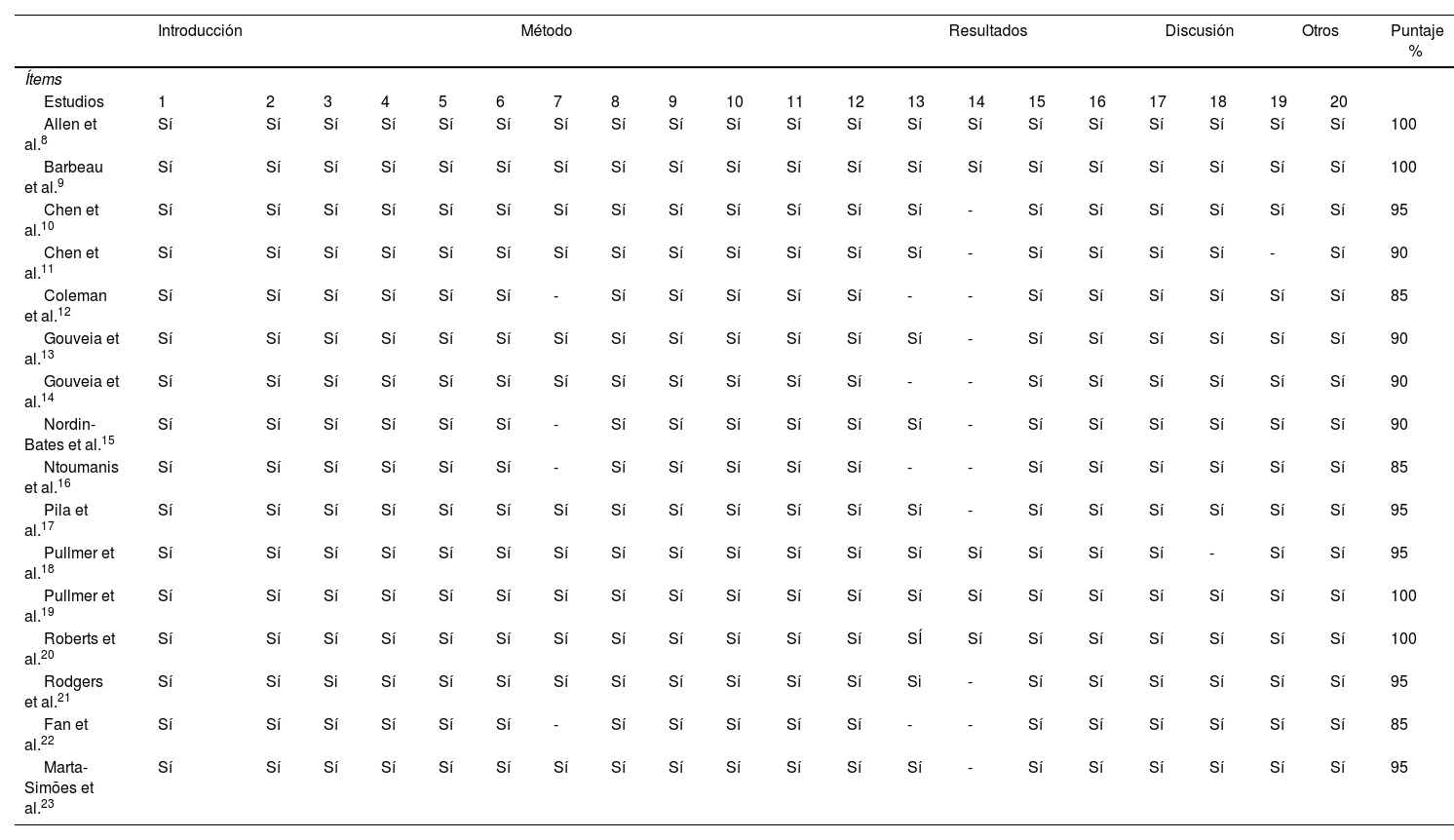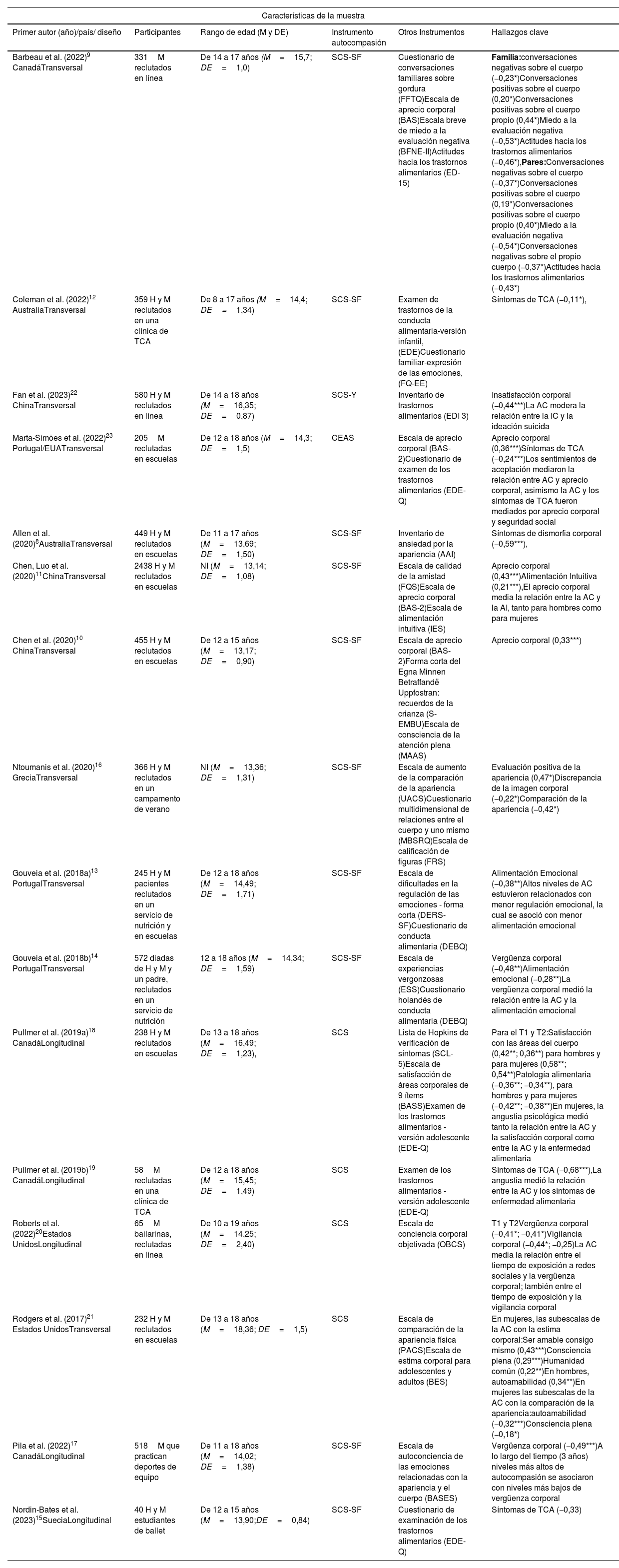En adultos, diversos estudios han encontrado que la autocompasión actúa como factor protector contra la imagen corporal pobre y la conducta alimentaria desadaptativa. Sin embargo, hay un notable vacío en la literatura que sintetice la información en población adolescente.
MétodoEl propósito de este estudio fue realizar una revisión sistemática para sintetizar la evidencia disponible sobre los correlatos entre la autocompasión, la imagen corporal y la conducta alimentaria en adolescentes. En esta revisión se siguieron los lineamientos de la declaración PRISMA. La búsqueda de la información se realizó en las bases de datos PubMed, PsycINFO, Scopus y Redalyc y comprendió estudios publicados entre 2017 y 2023 que incluyeran adolescentes de 10 a 18 años de edad. Se usaron los términos de autocompasión, imagen corporal y conducta alimentaria junto con sus sinónimos.
ResultadosLa revisión incluyó 16 estudios desarrollados en Norteamérica, Europa y Asia; ninguno en Iberoamérica. El instrumento más utilizado para evaluar la autocompasión fue la versión breve de la Escala de Autocompasión de Raes et al. Solo se han realizado 2estudios longitudinales. La autocompasión se asoció negativamente con la imagen corporal negativa y con la conducta alimentaria desadaptativa y positivamente con el aprecio corporal y la alimentación intuitiva.
ConclusionesEn el mundo hay pocos estudios longitudinales. La autocompasión potencia variables positivas relacionadas con la imagen corporal y la conducta alimentaria. Futuros estudios podrían enfocarse en la relación de la autocompasión con las variables positivas que favorecen la conducta alimentaria adaptativa y la imagen corporal positiva.
In adults, several studies have found that self-compassion acts as a protective factor against poor body image and maladaptive eating behavior. However, there is a notable gap in the literature that synthesizes information on the adolescent population.
MethodThe purpose of this study was to carry out a systematic review to synthesize the available evidence on the correlates between self-compassion, body image and eating behavior in adolescents. The guidelines of the PRISMA declaration were followed in this review. The information search was carried out in the databases PubMed, PsycINFO, Scopus and Redalyc and included studies published between from 2017 to 2023, which included adolescents between 10 and 18 years of age. The terms self-compassion, body image and eating behavior were used together with their synonyms.
ResultsThe review included 16 studies developed in North America, Europe and Asia; none in Ibero-America. The most frequently used instrument to assess self-compassion was the brief version of the Self-Compassion Scale by Raes et al. Only 2longitudinal studies have been conducted. Self-compassion was negatively associated with negative body image and maladaptive eating behavior; and positively with body appreciation and intuitive eating.
ConclusionsThere are few longitudinal studies around the world. Self-compassion boosts positive variables related to body image and eating behavior. Future studies could focus on the relationship between self-compassion and positive variables that promote adaptive eating behavior and positive body image.








